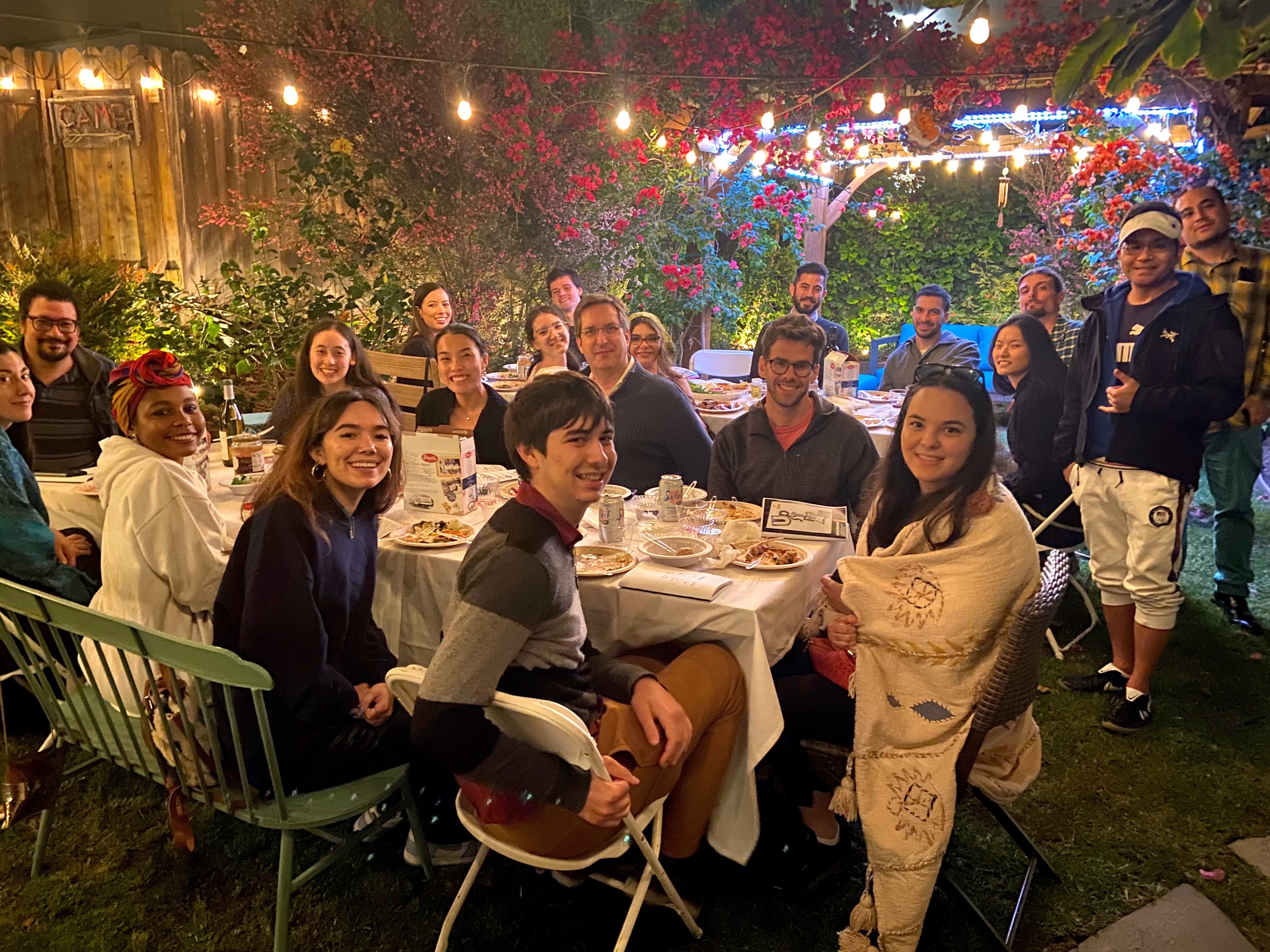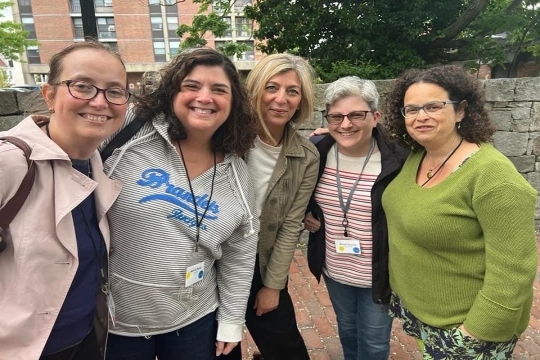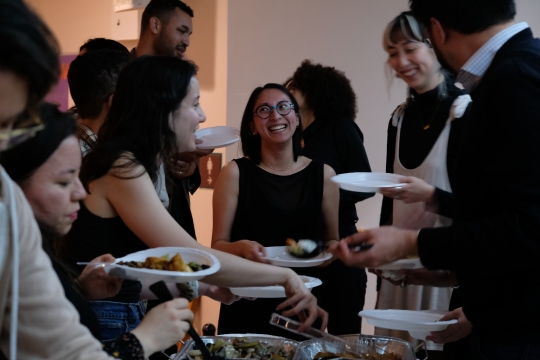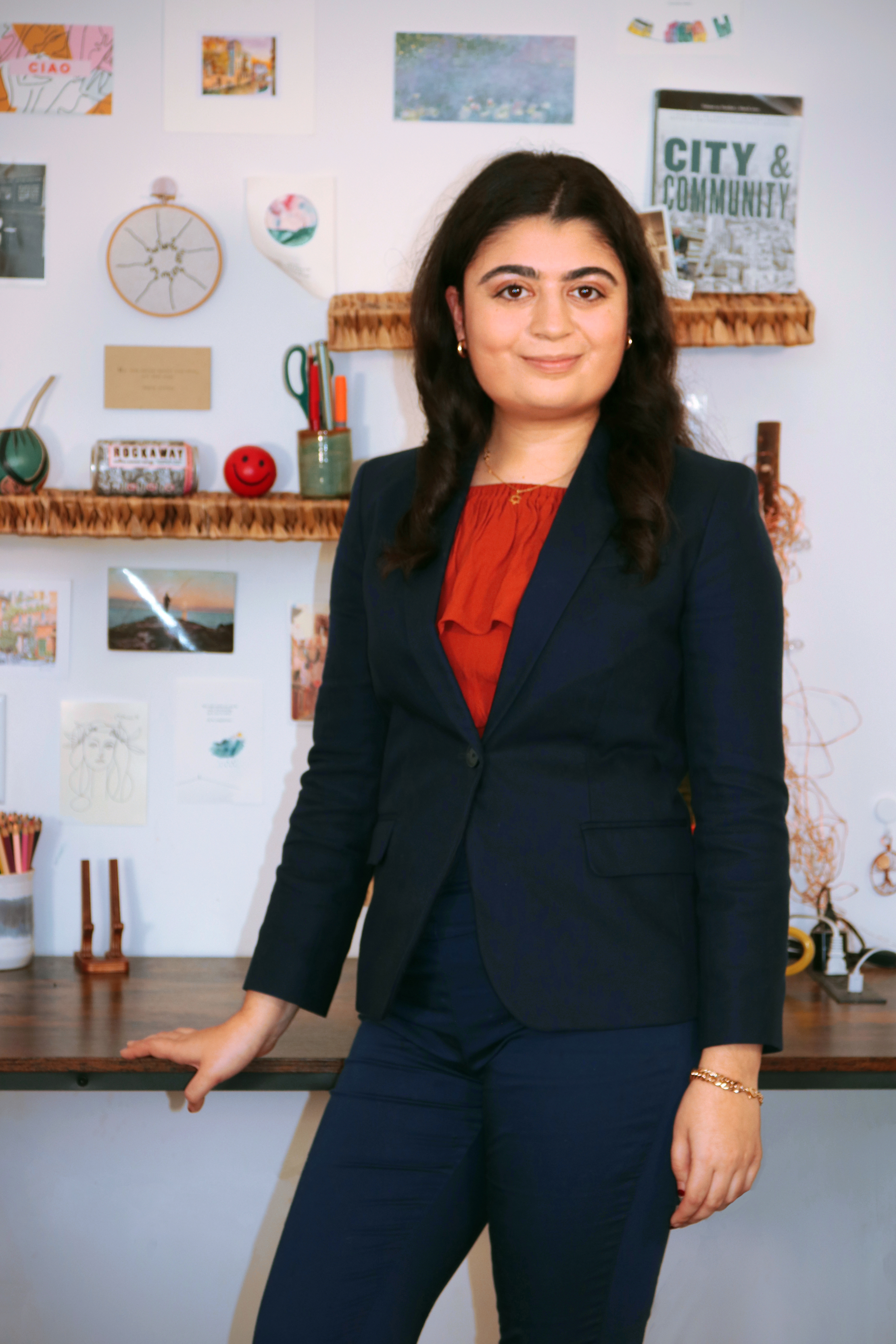
There has never been an Asian American Jewish in-person Passover Seder. Until this year.
Despite the ongoing challenges of the COVID-19 pandemic, LUNAR: The Jewish-Asian Film Project was able to produce a multifaceted Asian Jewish Passover, free of charge, for our community. The Passover included an Asian Jewish Haggadah, a Passover video with an Asian Jewish Rabbi, and three in-person Passover seders spanning the country. All of this could not have been done without the ongoing support of Women of Reform Judaism (WRJ) and its YES Fund.
Here’s how it all came together.
In January 2022, our team started to dream about making an Asian Jewish Haggadah – a full text that would take us through the Exodus story, that was by us, for us. As LUNAR’s Director of Community Engagement, I felt daunted by this idea. I had grown up in Humanistic Judaism; it felt like there were gaps in my knowledge base, and this was just a Goliath of a task. I knew we couldn’t do it alone, and I asked, who would be able to help us?
I decided to make a call out to the community, via our social media pages, Discord group, and newsletter, asking if anyone would like to apply to join a volunteer Haggadah Committee. With a short application, and availability to meet bi-weekly, about 10 people applied to join us. Committee members hailed from locations across North America, represented a wide range of cultural identities, and had various Jewish backgrounds. They too felt daunted by the depth of this task - but honestly wanted to help. So, we got to work.
Our first committee meeting was mostly introductions, sharing who we were, our Asian Jewish journeys, and our relationships to Passover. And at this first meeting, I experienced a feeling that I feel at every LUNAR gathering, yet never get tired of, deep understanding and acceptance. We bonded over shared experiences of growing up as the “only Asian Jew” and marveled at the joy of sitting in a community with other Asian Jews today. Even through the separation of Zoom, we were all so excited by the chance to be amongst each other. Sharing our favorite Asian Jewish fusion foods, we shared similarities in our upbringing that had felt isolating in childhood. There was something so magnetic about this space.
From there, we looked at past Haggadot and thought about what we found meaningful and relevant about them. And then, we started to tentatively assign tasks. What if we incorporated “Dayenu” with an Asian Jewish lens? What if we had an Asian Jewish Seder plate? And then more boldly, what if, alongside the stories of resistance that the Jewish people faced in Passover, we found stories to match, of Asian resistance throughout history? As our conversations continued, the theme of resistance began to mark our work, and we used it to propel us forward.
This led our committee to break off into three parts. We had a group looking at the story of Moses’s adoption, seen through the lens of Asian Jewish adoptees; a group focusing on Dayenu; and a group researching stories of Asian resistance.
The adoptee group sent out a call to the LUNAR community and gathered numerous testimonies from Asian Jewish adoptees. They shared with us their experience of being an Asian American adoptee, and how they feel about the story of Moses. We were so moved to find countless similarities between these stories, with feelings of complications around the notion of a “homeland,” pain around having a family you never got to know, and about wondering where exactly you belong.
The “Dayenu” committee was excited to explore what it looks like for things to not be enough, in relation to the Asian Jewish experience. Would it be enough if: “Asian women feel safe in public spaces,” or “Asian elders can walk freely on the streets near their homes” or “the loyalty of Asian Americans is not drawn into question when in a global crisis” - or “will we always have to keep yearning, hoping, dreaming for more?”
And in the Asian Jewish resistance group, we discussed countless stories of bold and brave resistance in Asian history, from the farm worker strike currently taking place in India, to the NYC Chinese Garment Workers Strikes in the 1980s, and many more. This showed us that the bravery of the Jewish people, in times of human rights violations, and prejudice, is not too different from the bravery of our own Asian elders in their history. These experiences are more alike than we realized, both the core part of our own selves, and our overall history as Asian Jews. As we started to combine these pieces together into the Haggadah, the stories began to flow, and we added other moments, like a blessing from one of our Asian Jewish elders, songs, and reflections from our committee members on resistance.
WRJ’s YES Fund grant allowed us to print out full booklet Haggadot that were shared at our three in-person Passover seders. Through tears, laughter, and joy, our community members got to read the piece of Jewish text that felt like their own. No participant felt like an imposter, or confused, they felt at home. WRJ also helped support the ritual elements of the Seder, and a hybrid meal of delicious Asian Jewish food.
These Passover Seders were just three of the 16 programs WRJ’s funding has supported in the last year. These programs have ranged from an Asian Jewish Adoptee Dialogue Session to a Spa Day, to a national Hanukkah Extravaganza, featuring a virtual address by Rabbi Mira Rivera. WRJ has allowed LUNAR to test out a wide variety of programs, from virtual to hybrid to in person, and by the time we arrived at Passover, we felt well equipped to produce all of its components.
Women for Reform Judaism has inspired LUNAR to strategize more broadly about what it means to uplift and nourish our community members, and how to incorporate Jewish text and rituals for people who come from a wide scope of Jewish journeys. We feel so aligned with this organization and are grateful to find a partner that has gone out of its way to support all Jewish people, regardless of ethnicity and religious background in their Judaism. We hope every year to keep adding to our Haggadah, to make it stronger, more diverse, and more uplifting. The work is just getting started.
_______________________________
Check out our Passover Haggadah here.
Related Posts

“How good it is — when sisters dwell together!”

LUNAR: Simply Remarkable - An Ongoing WRJ YES Fund Partnership
75d5.jpg)

